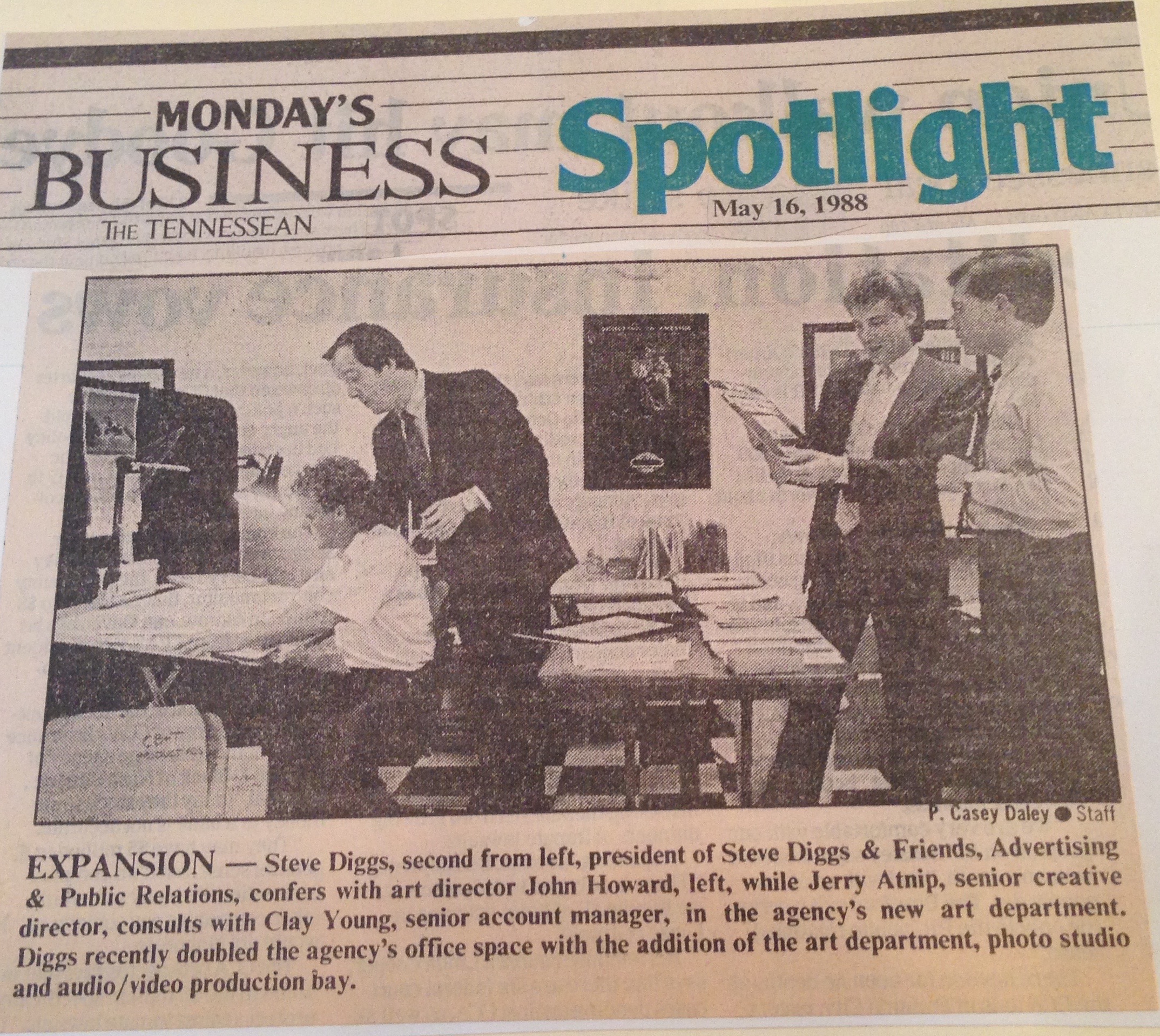
20
20163 Simple Concepts…That Built a Multi-Million Dollar Business
In the spring of 1977, Bon and I determined to begin our own business…an ad agency in Nashville. But, due to terrible spending habits, I’d wasted all the money I’d earned in the three years since graduating from college in 1974. The only money we had was $4,000 that Bonnie’s family and friends had given us as investors in our new business. (To this day, I suspect some of my “investors” gave me that money so Bonnie wouldn’t starve to death!)
In May 1977, we rented a 600-foot office suite on Music Row, which needed to be remodeled in the worst way. By the time we opened for business a couple of weeks later, we had only $1,900 left.
For all practical purposes, we had no money and no clients. It would be an understatement to say that the first few years were nail-biters. But at least no one was calling the shots except us. At first, it was just the two of us. She worked plenty of 70-hour-weeks, and I worked lots of 90-hour-weeks. It’s tough to start a business. That’s especially true when you start one the way we did.
In truth, I had never taken a course in marketing. I’d never worked at another ad agency—even as an intern. But if other people could do this, I reasoned, so could I. In those early days, I spent lots of time reading books and looking at what other people in the business did. I hung around pros and asked lots of questions. Ultimately, it boiled down to mastering three simple concepts:
- Learn the basics.
I had to get my arms around the fundamentals of advertising. This was going to be a seriously steep learning curve. It meant that I had to master the foundational methodology that all good advertising demands. In later years, I got a chuckle out of it when I was asked to judge an advertising award show, speak as an expert on CNN, or teach college-level advertising courses. If only they knew how self-taught I was.
- Apply salesmanship to the advertising world.
Soon I began to understand that, conceptually speaking, advertising is pretty simple. It’s nothing more than salesmanship to the masses. Since I was already a fair salesman, I decided to apply those techniques broadly on behalf of my clients.
- Know when not to listen to the traditional wisdom of the ad business. Almost immediately, I noticed something smelled fishy about the advertising industry. There was a terribly high mortality rate within the business. Many ad agencies closed their doors within the first year. Even large agencies went down in flames. Something was clearly wrong. Many agencies overpriced and overpromised — and clients didn’t like it. So I decided to rethink things. Why not keep overhead down so we could keep our prices below the competitors? And why not tell the truth? Instead of overpromising, we could simply try to deliver on what could be reasonably expected. And, lastly, why not remember whom we work for? Many agencies seemed to miss the point that the boss is whoever signs the checks. Too often agencies were fixated on winning awards and accolades from their peers — while producing ineffective advertising for their clients. My goal was to live by the old adage: “It ain’t creative if it doesn’t sell!”
This isn’t to say that we were allergic to awards. Over the years, our firm employed dozens of people and won lots of awards, including a national ADDY Award. We were blessed to work with some of the finest clients anywhere. I hope we helped many of their businesses grow and flourish. Every day was new and adventurous. Over couple of decades, the business grew and grew. We became one of the leading firms in our region. Eventually, we owned our own of office building on the same world-famous Music Row that I had visited as a boy. Thankfully, we never had any major setbacks during our years in business. We never had a layoff. We never had a major cash flow problem. And we were profitable.
My point is all of this is that success doesn’t necessarily come to the smartest and best pedigreed people. Usually it comes to those who have a dream and are willing to work harder than their peers. Dogged determination counts for a lot.


